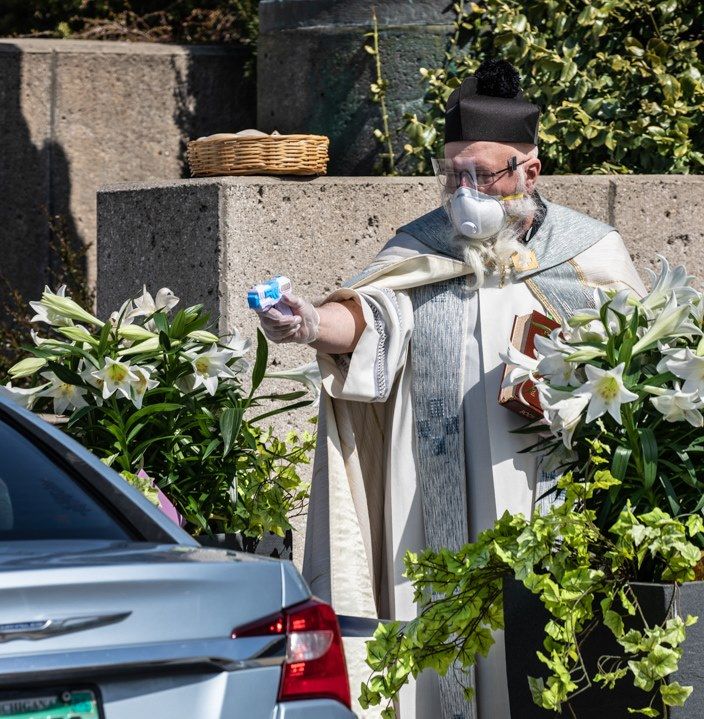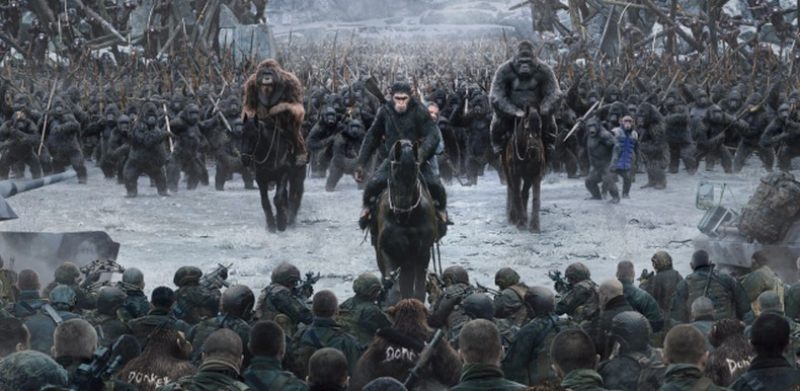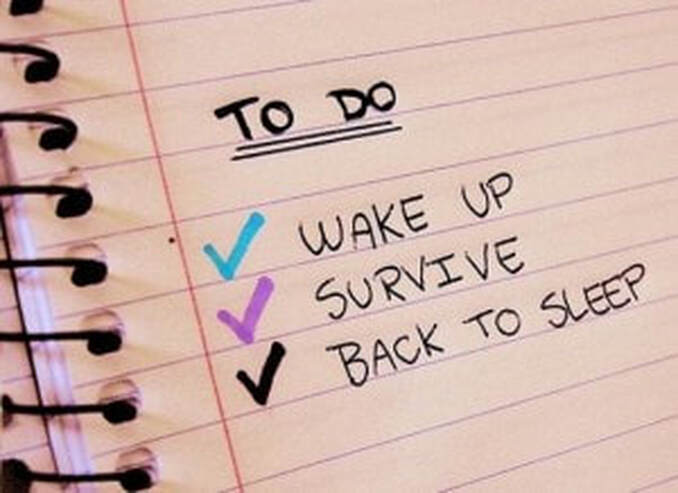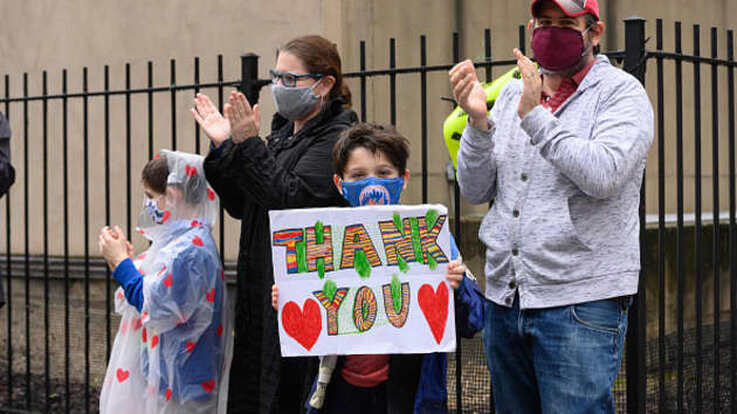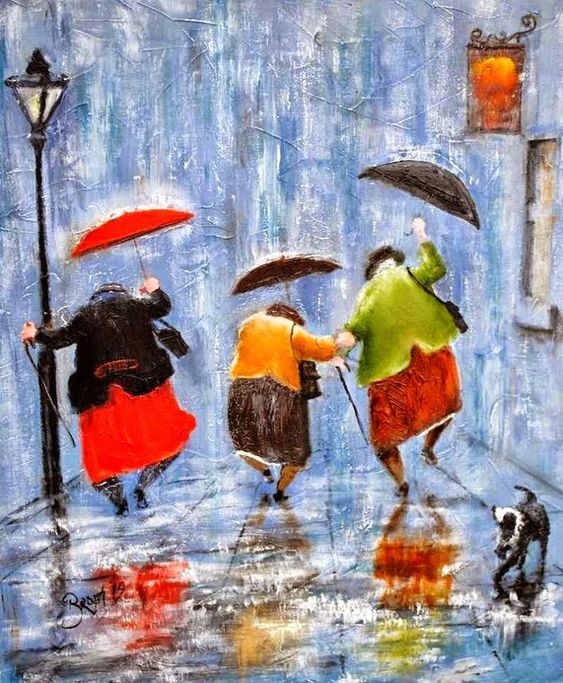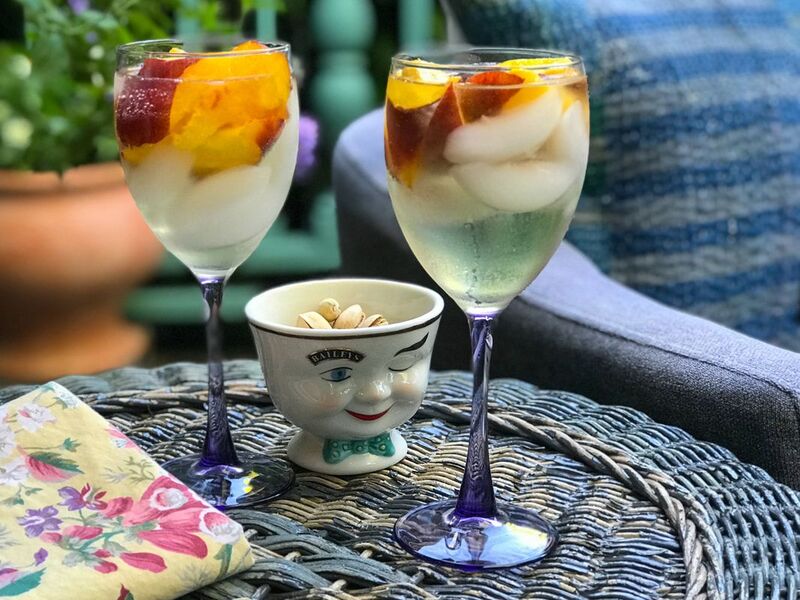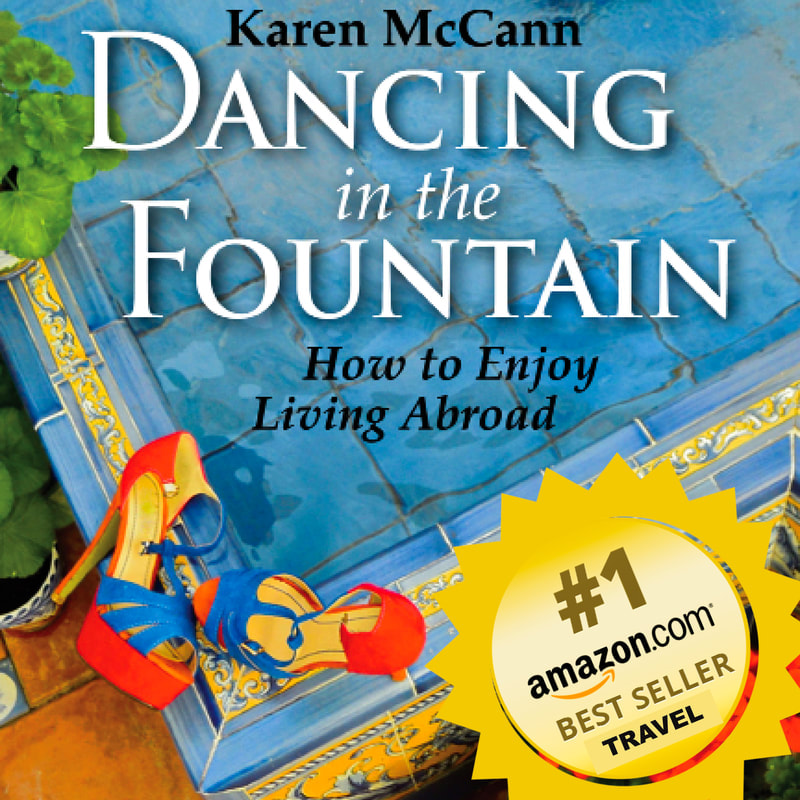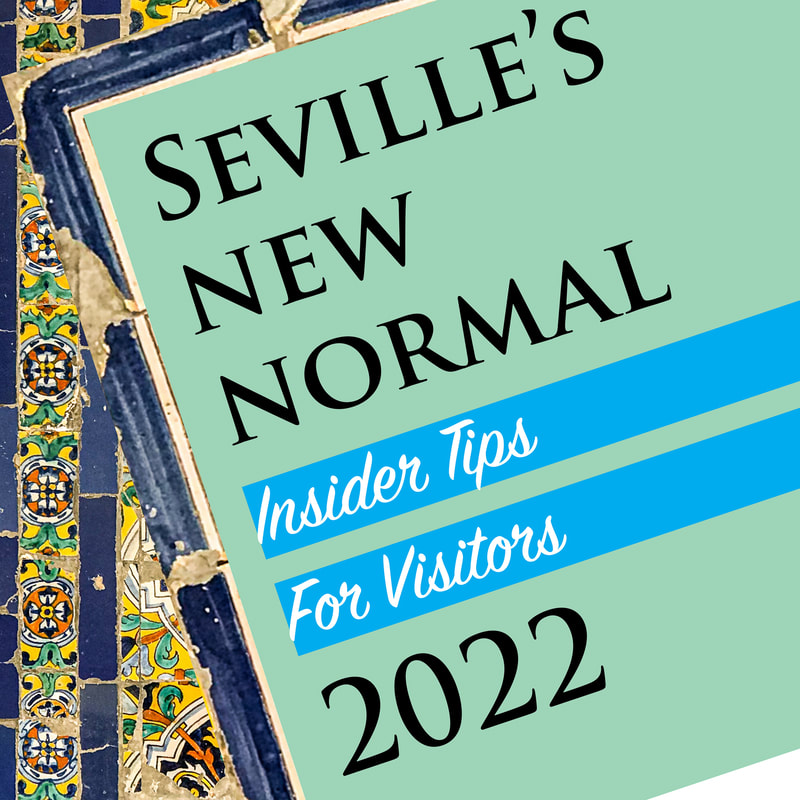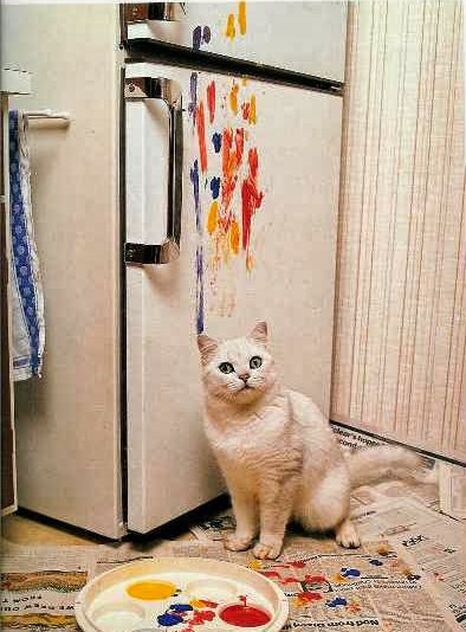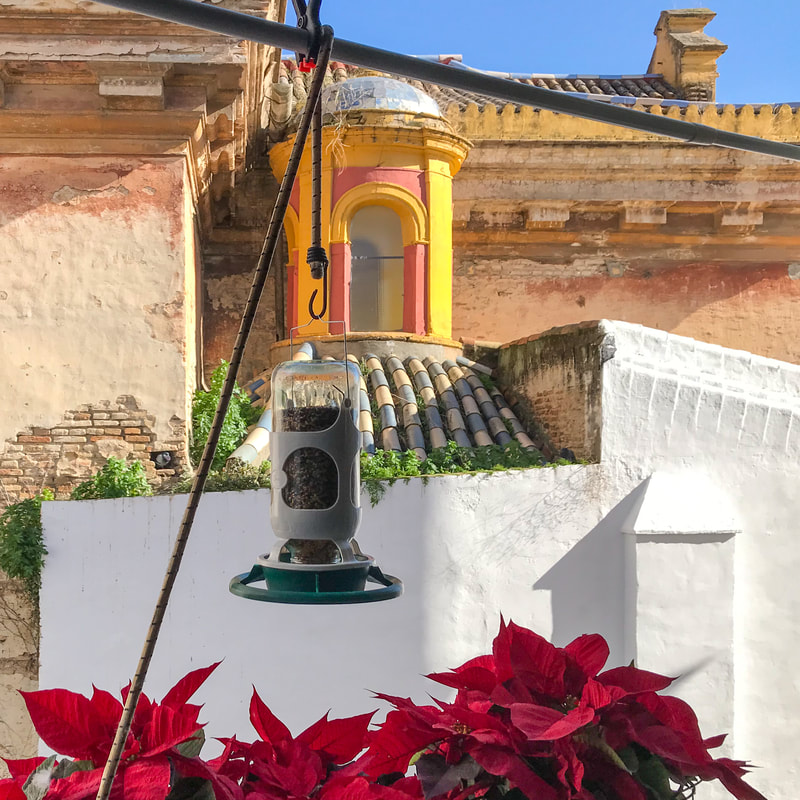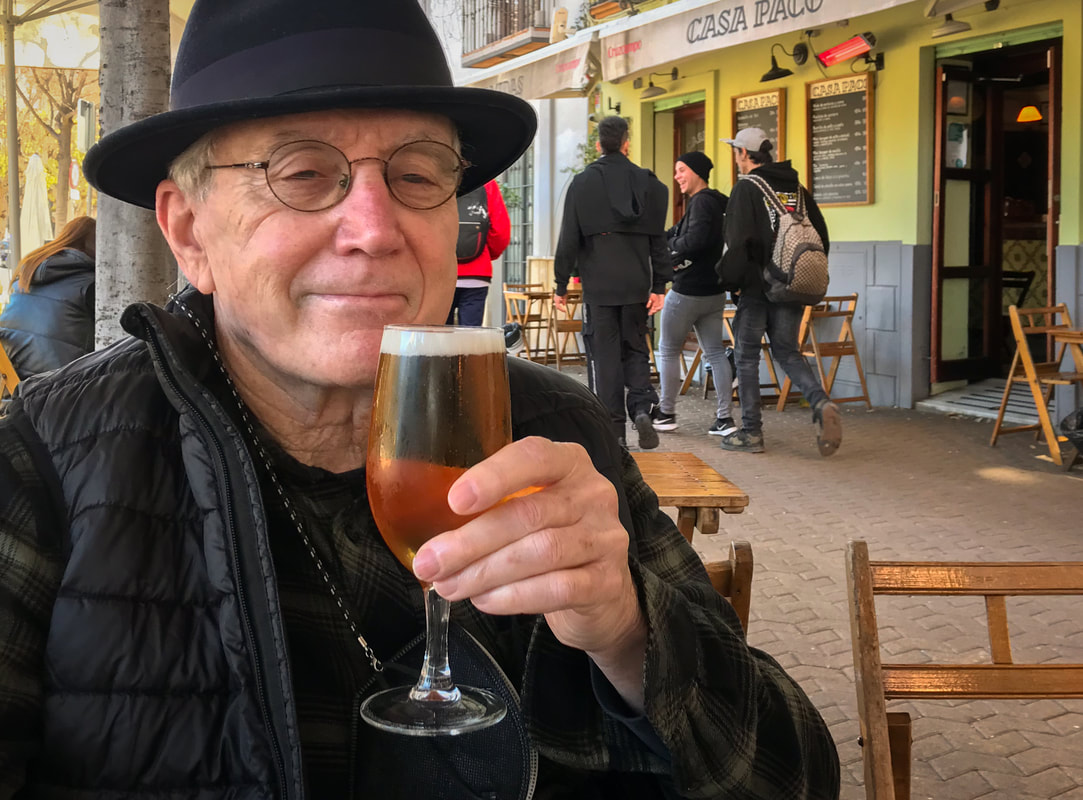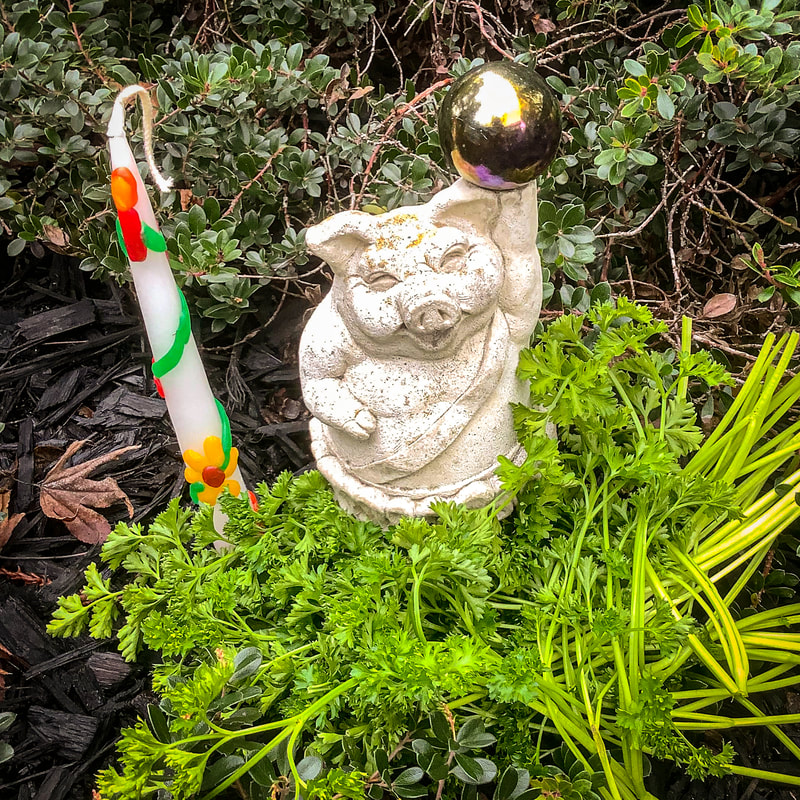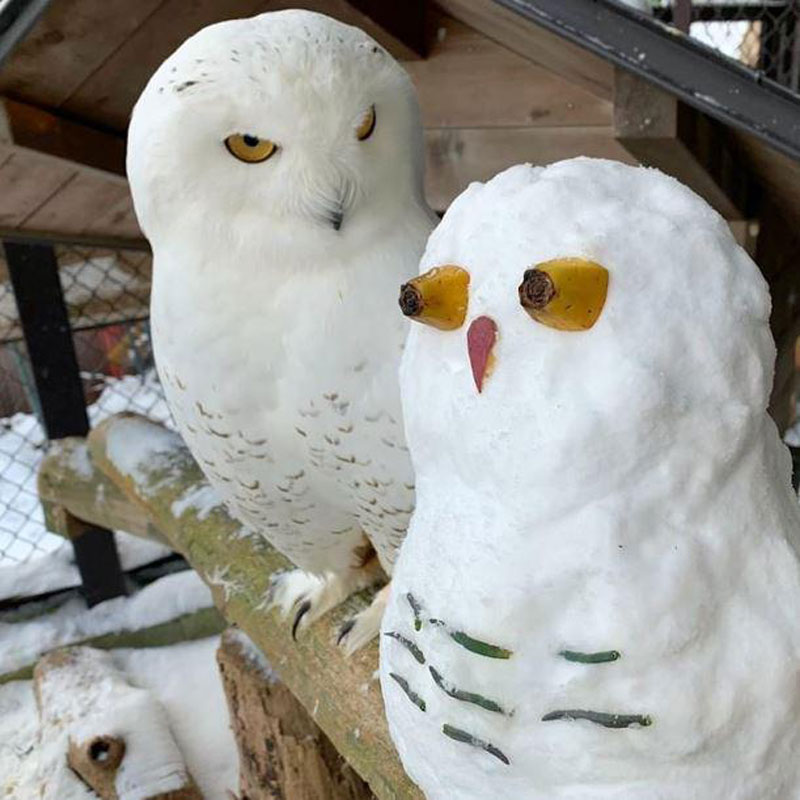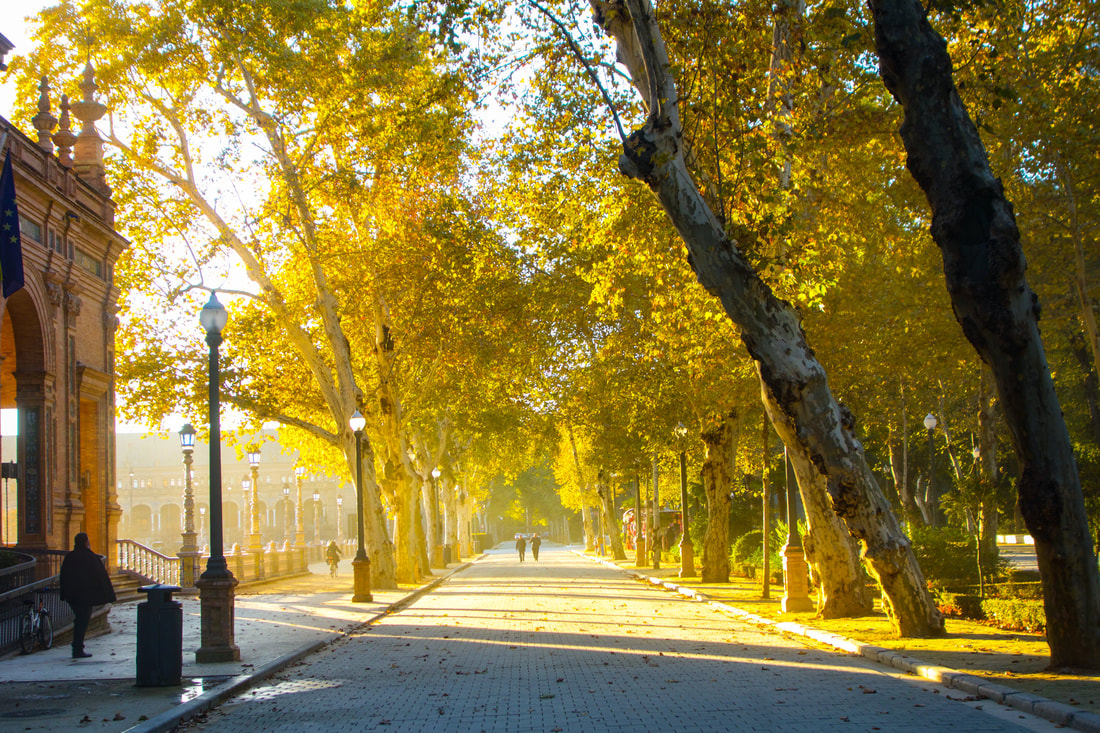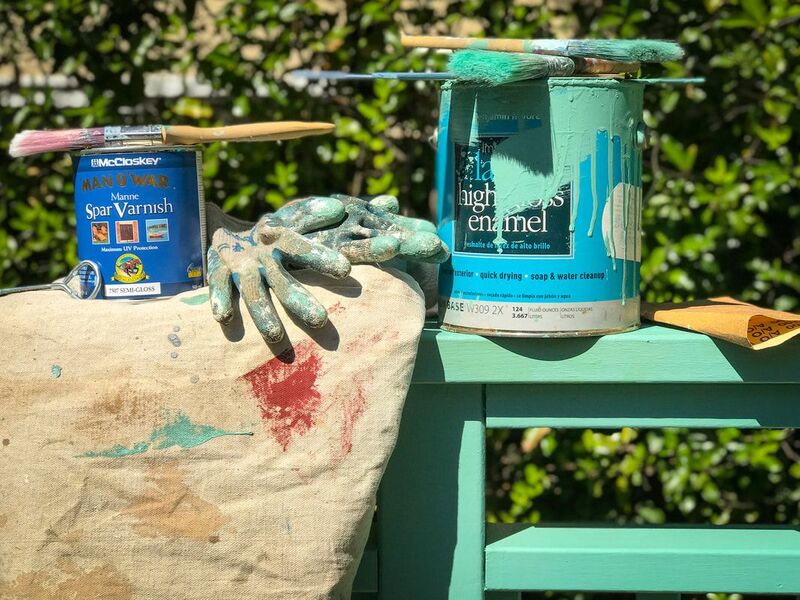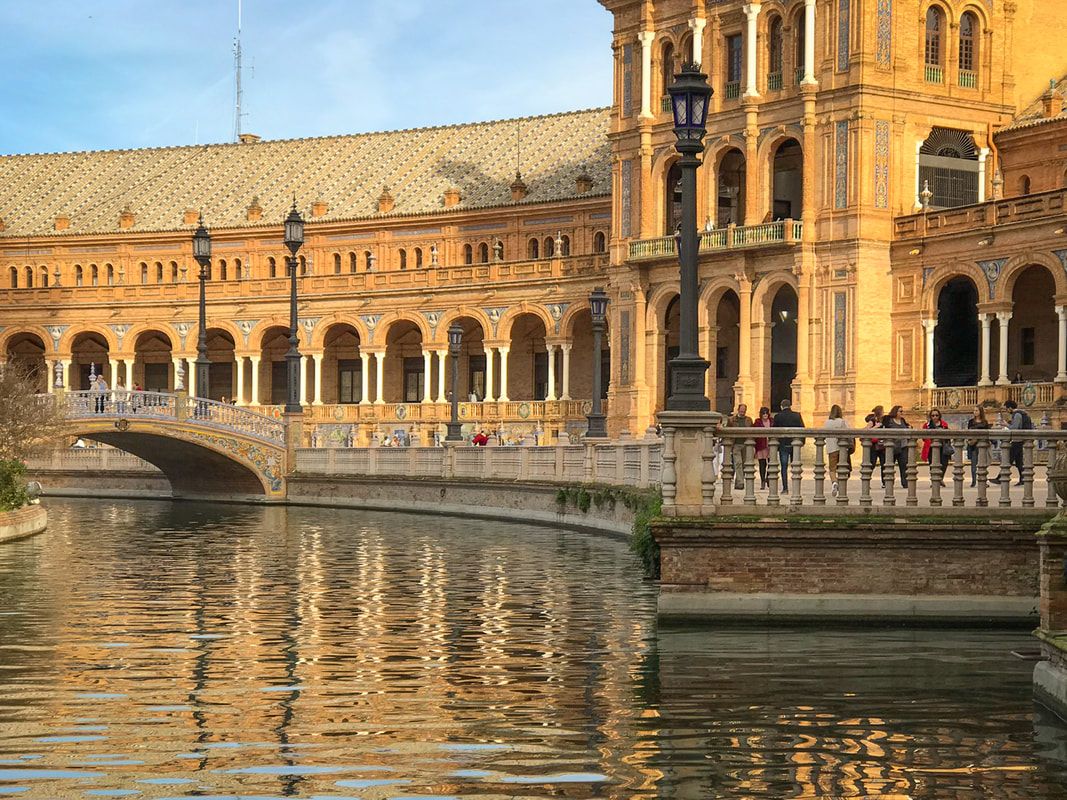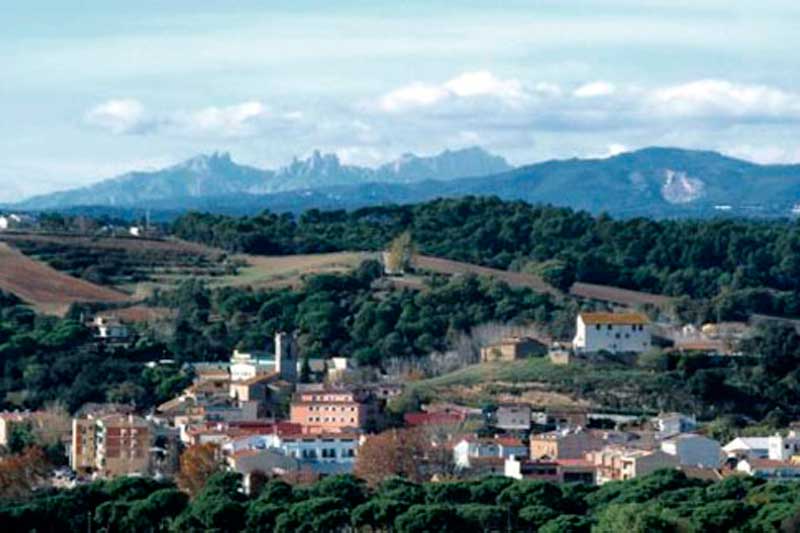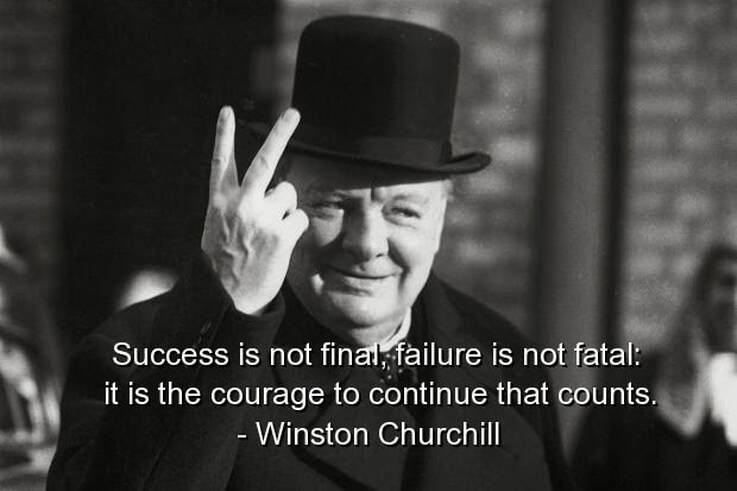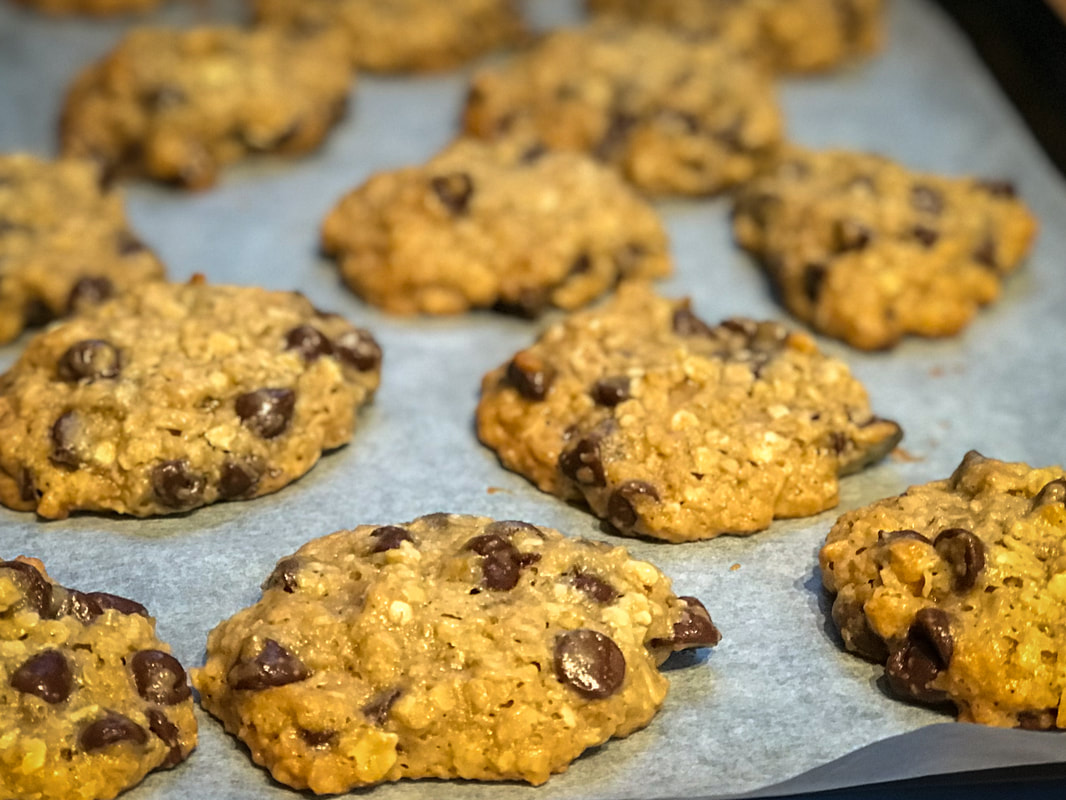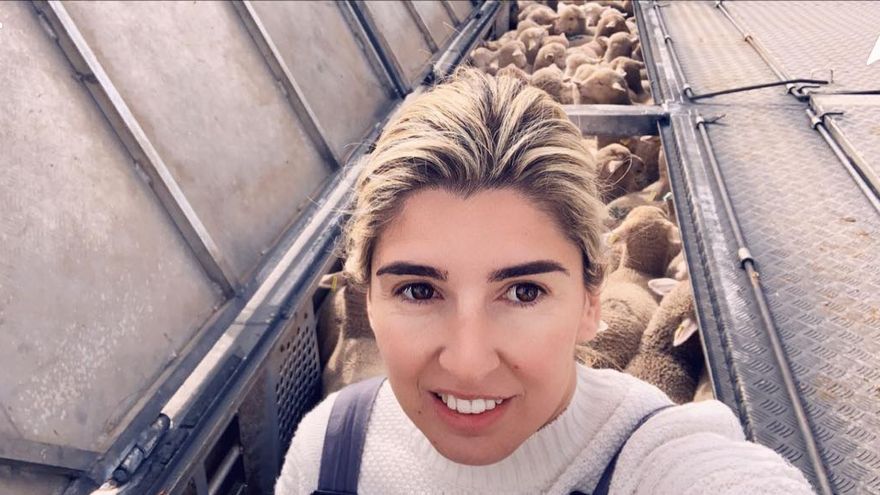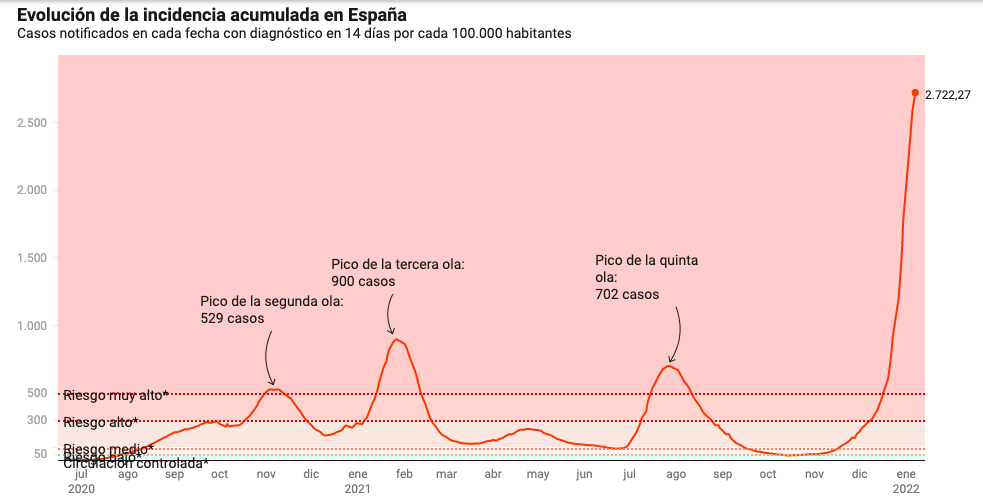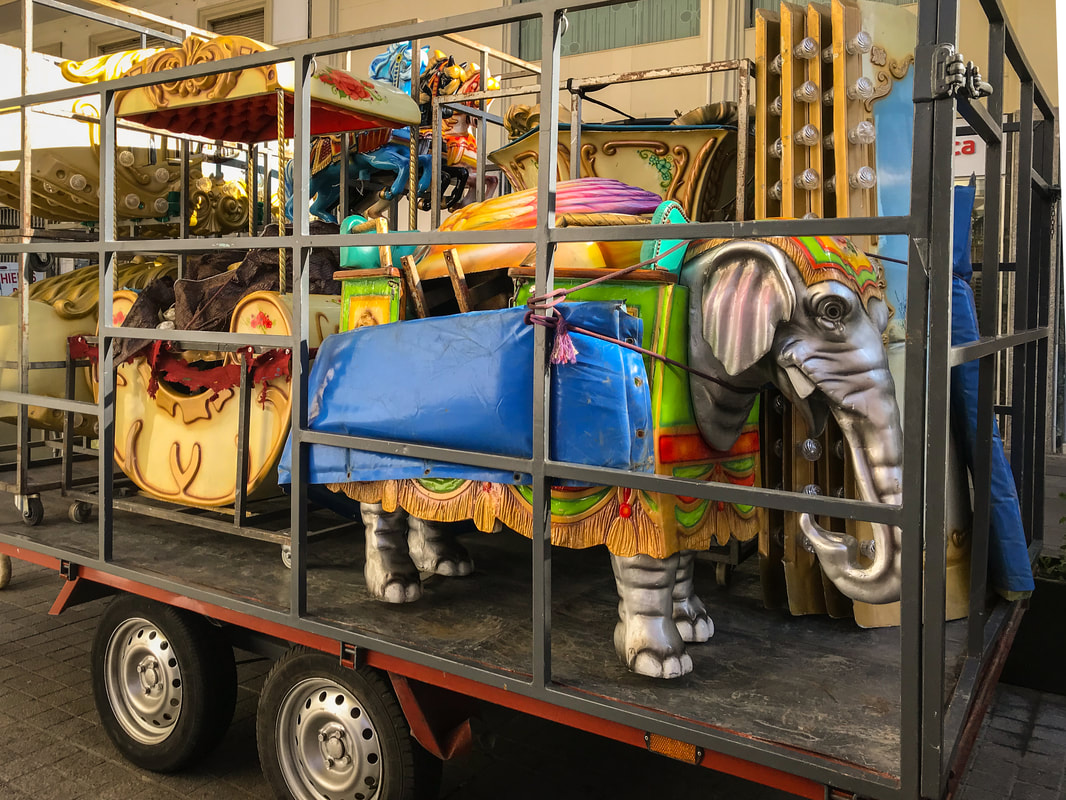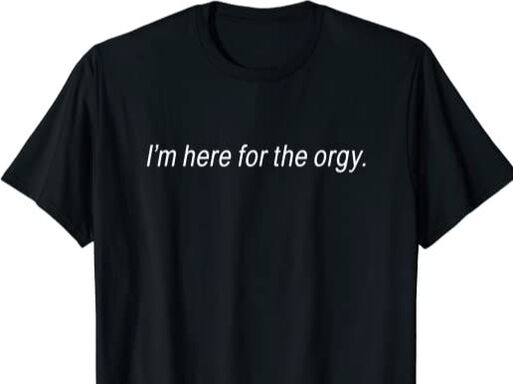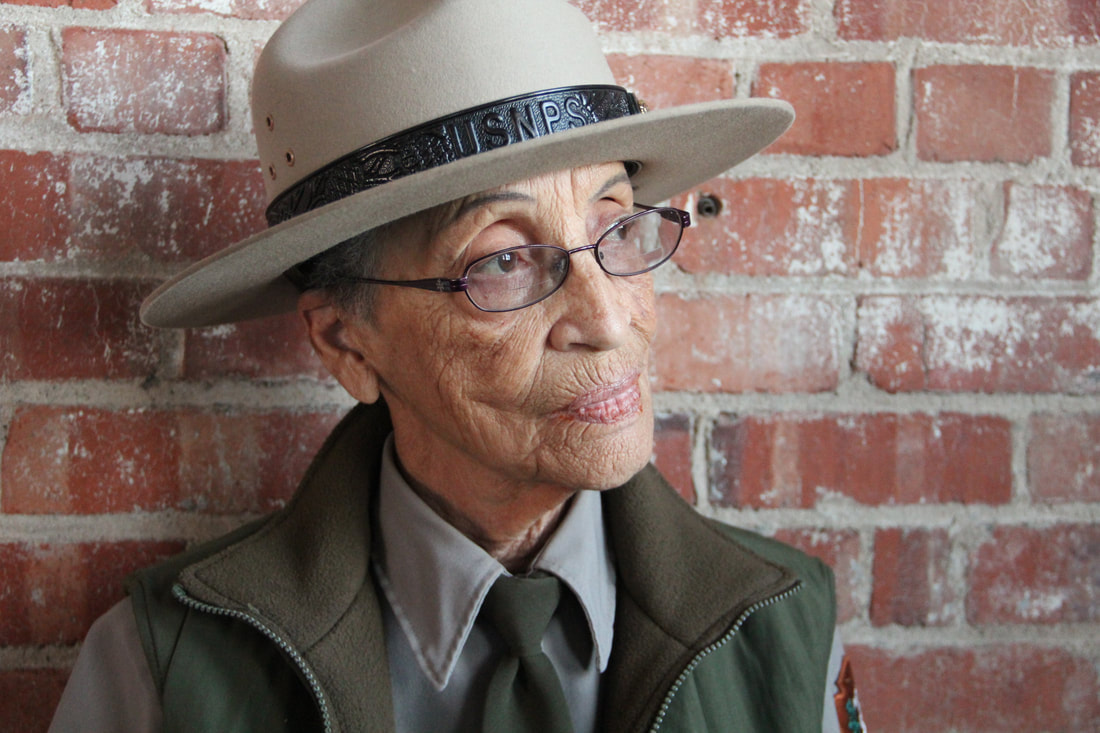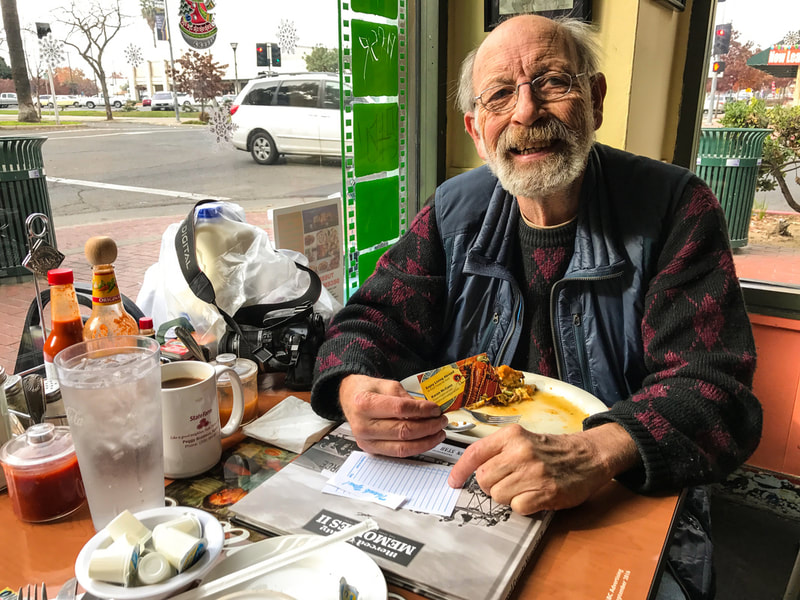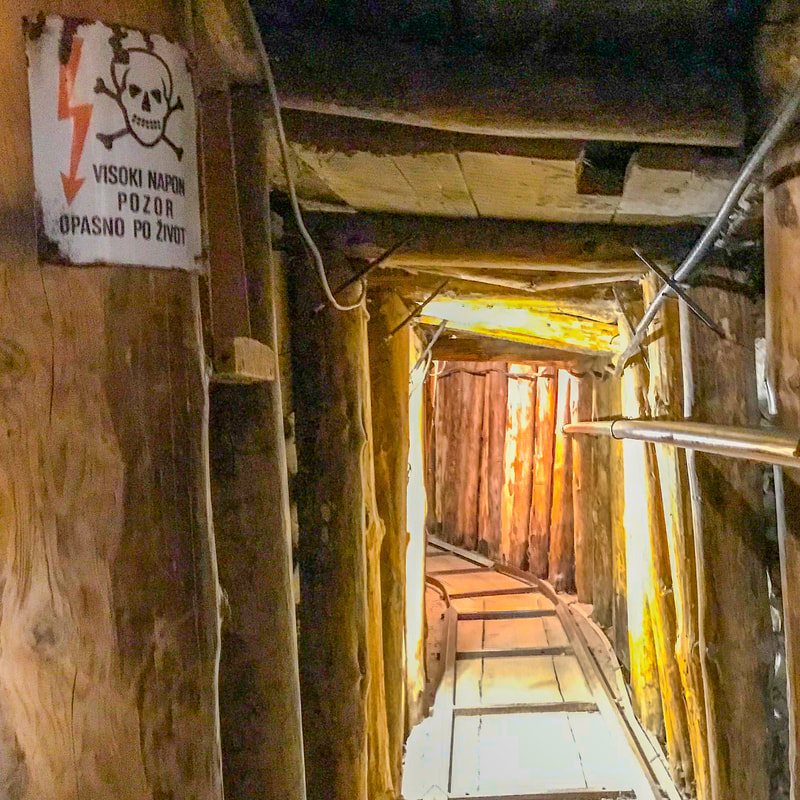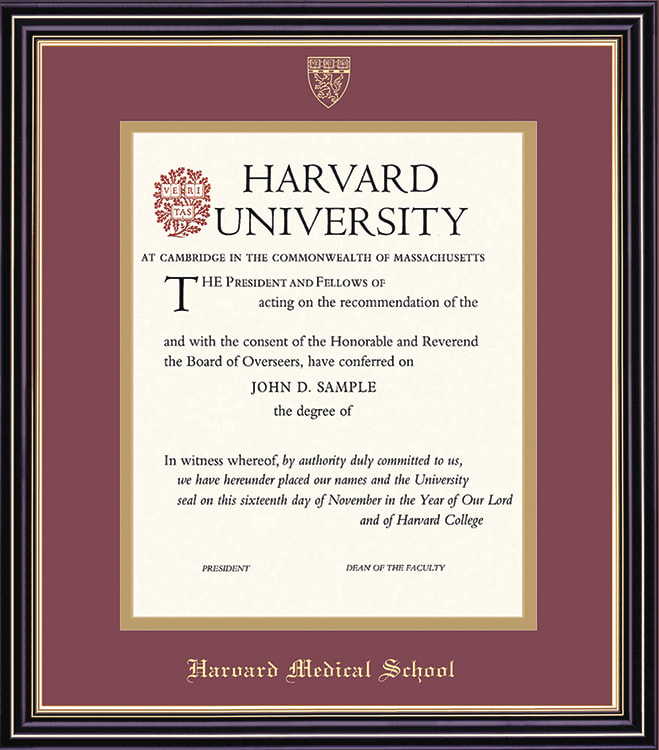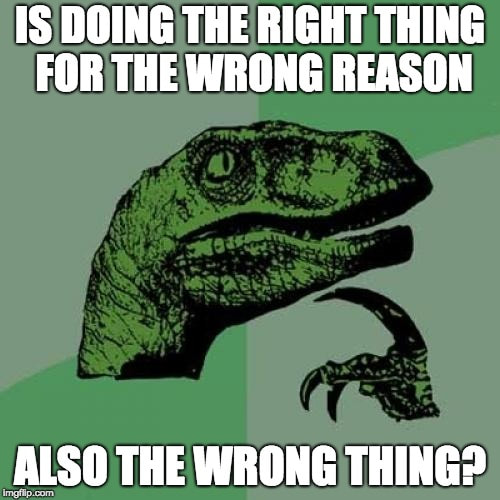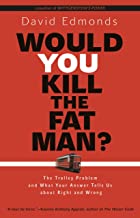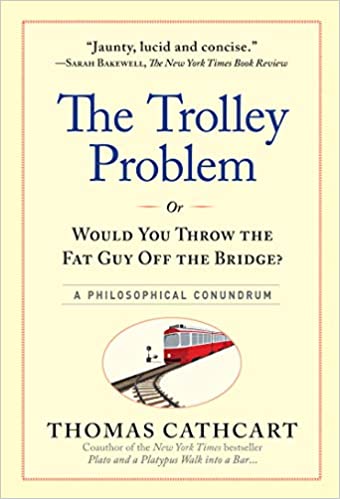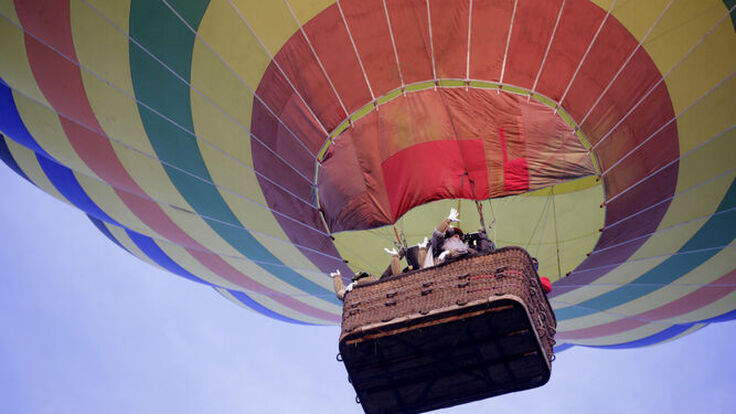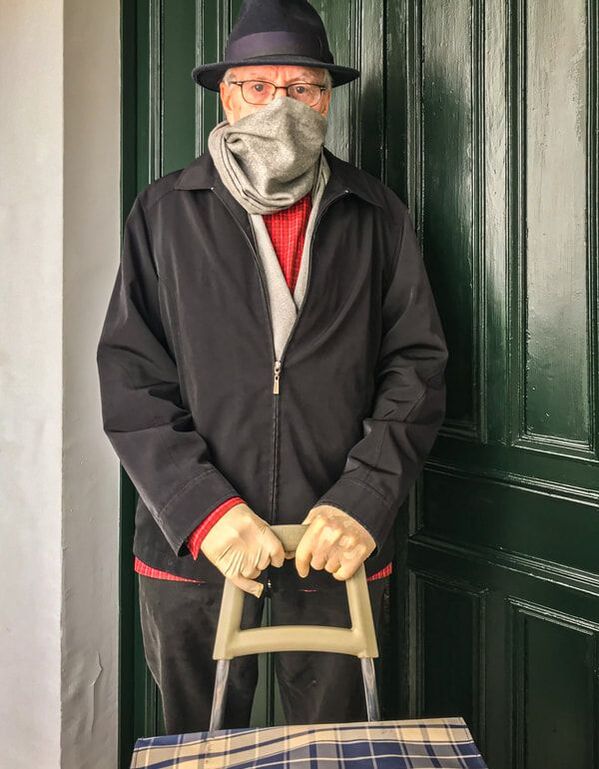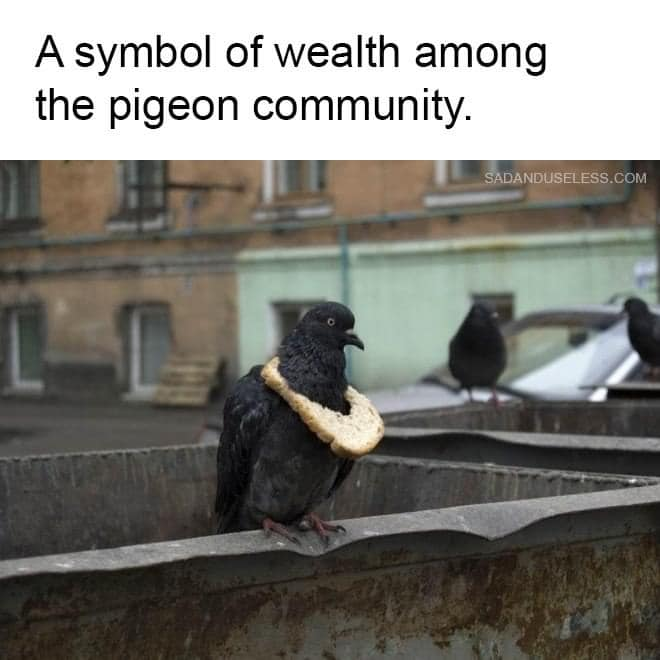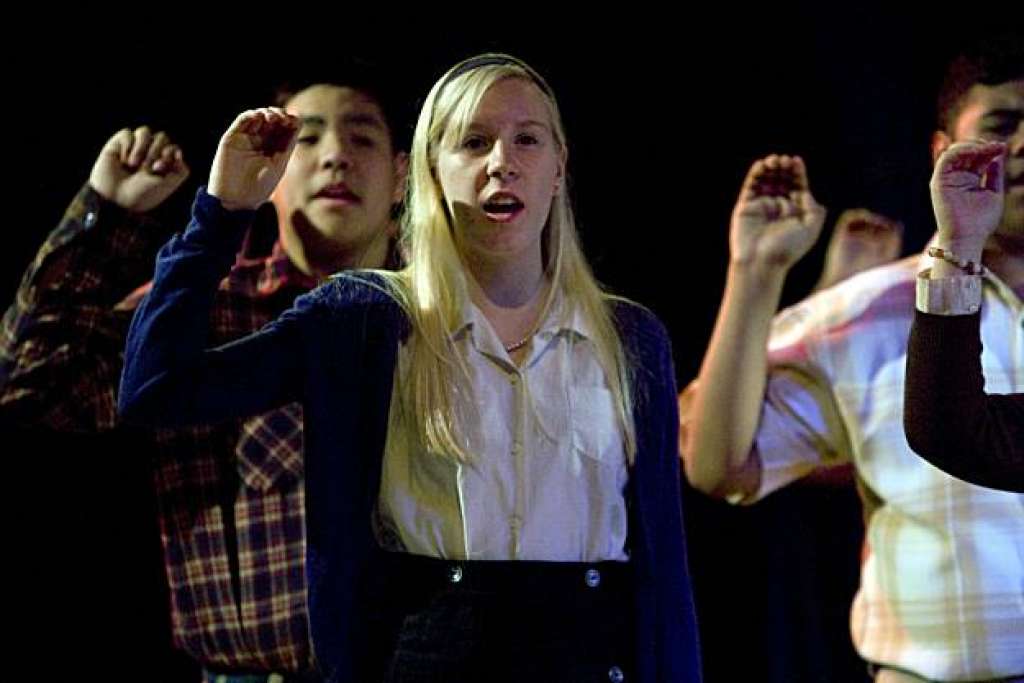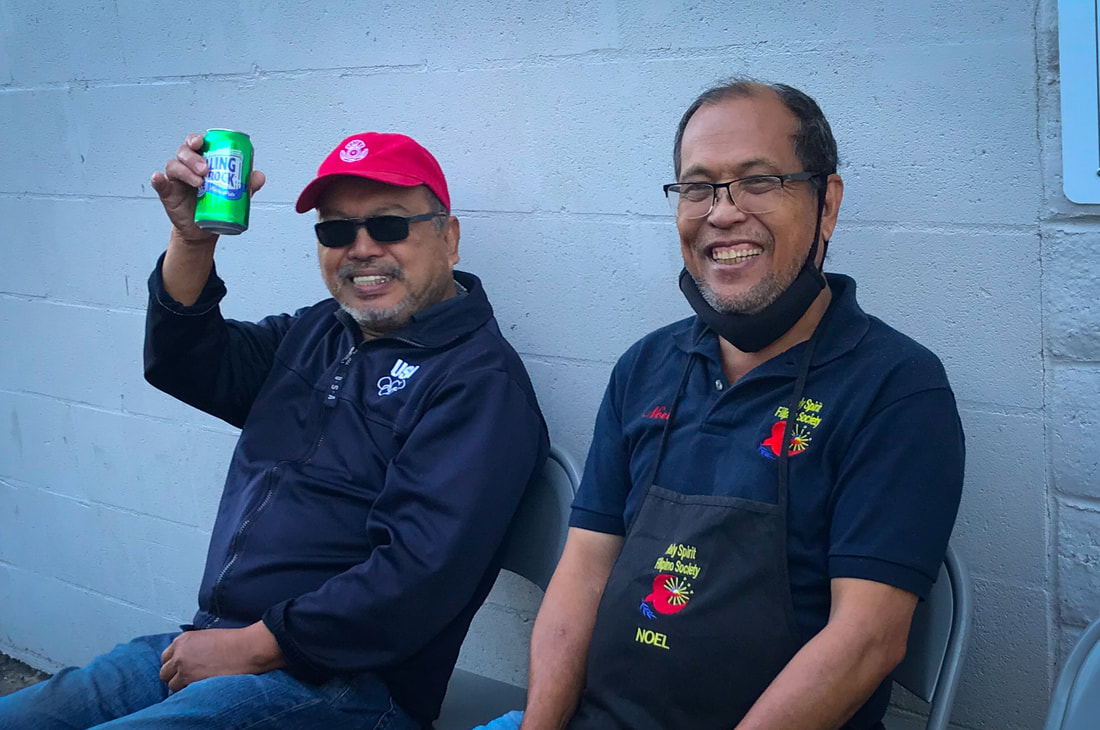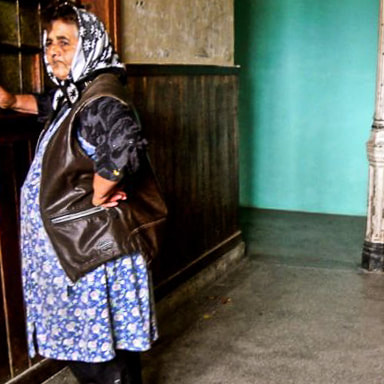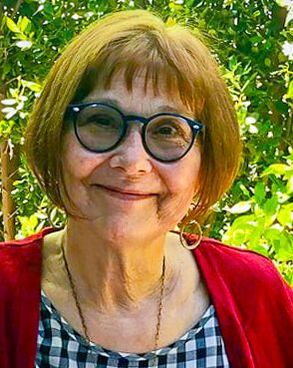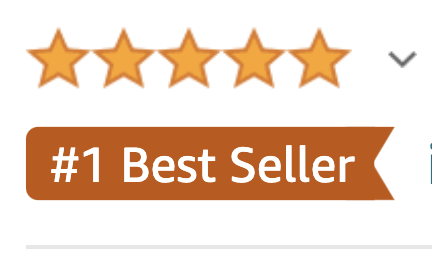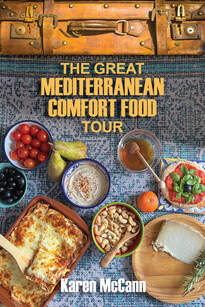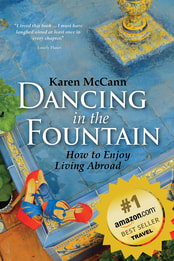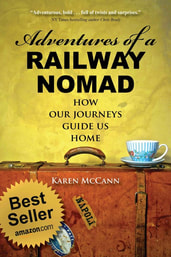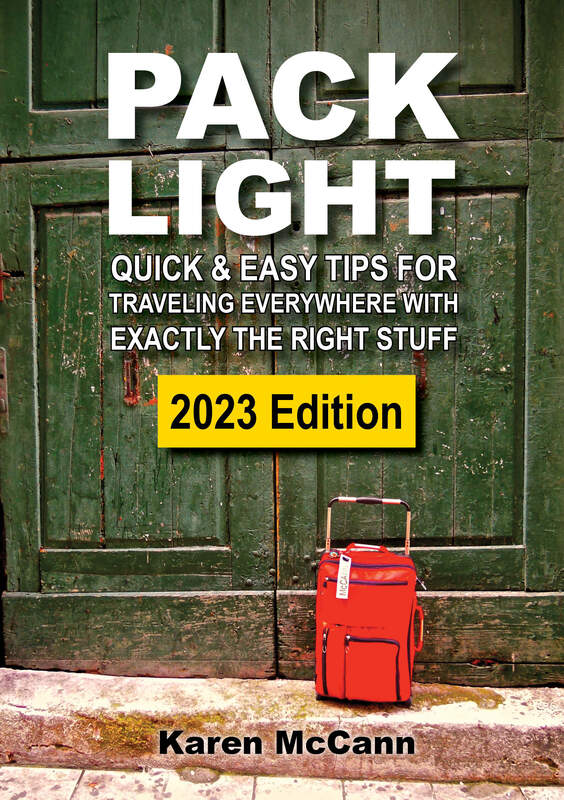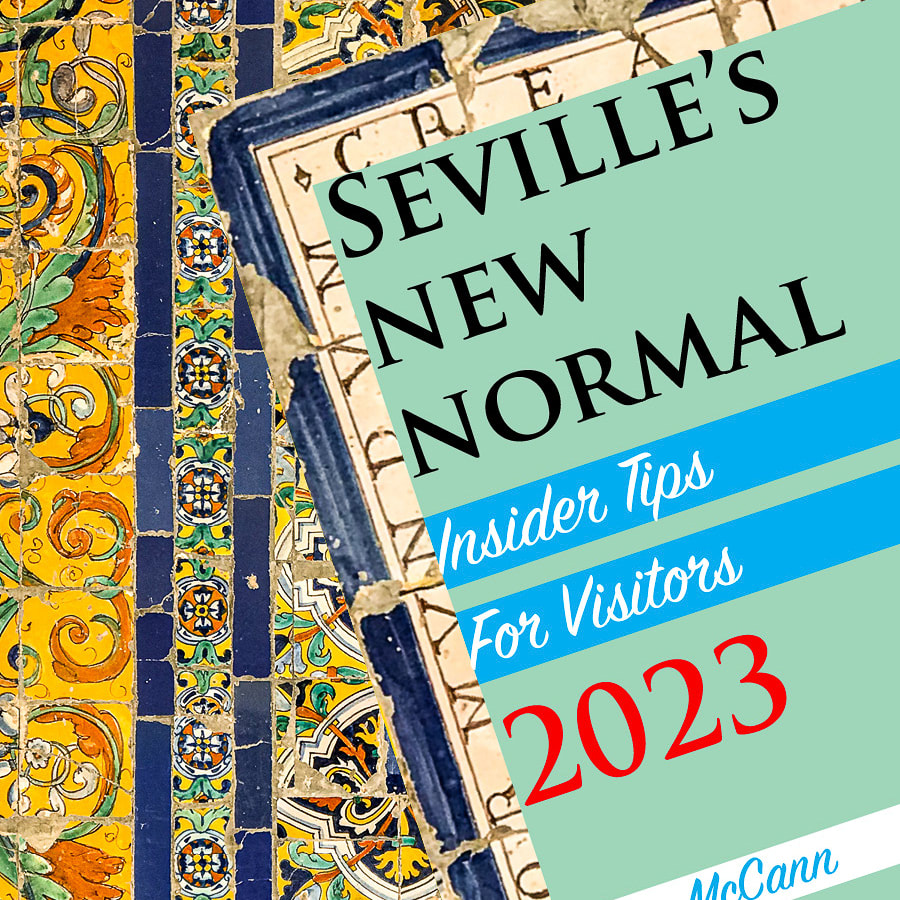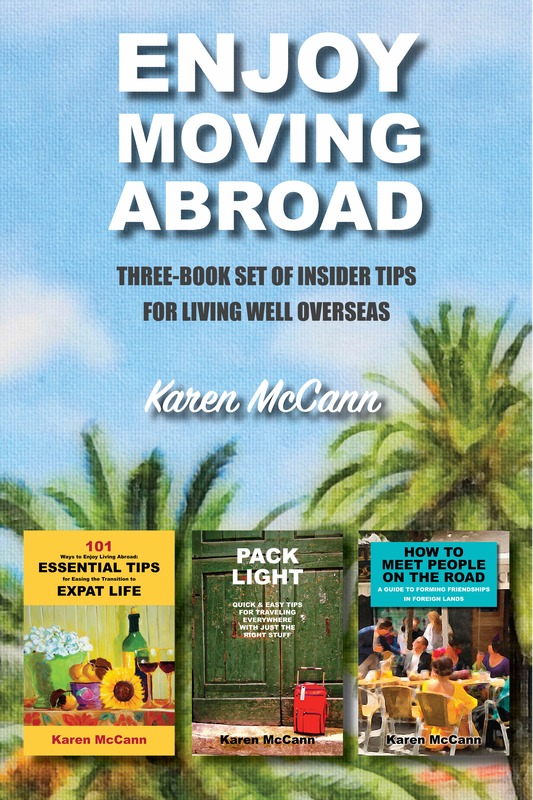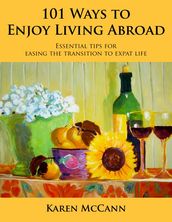|
When I read that a Catholic priest was using a squirt gun full of holy water to bless his parishioners’ Easter baskets while social distancing, I realized it was time to embrace the wacky side of the new dystopian order. This was in a suburb of Detroit back in April of 2020, and when Father Tim stood outside San Ambrose, armed and sanctifying, I like to imagine his flock found it as heartwarming and chucklesome as I did. Looking for the lighter side of these dark times has helped me hold onto some shreds of sanity. And since Father Tim’s squirt gun hit the news (and the Easter baskets), I’ve discovered countless stories about just how oddball things can get when people have high anxiety, a relaxed hold on common sense, and way too much time on their hands. For instance, an international group of scientists, who obviously have never seen a horror movie, recently created the first human-monkey embryo. Press releases describe the scientific breakthrough in which hybrids, known as chimera formations, are made with human stem cells implanted into monkeys. "Of course," notes the online magazine Nerdist, "that doesn’t answer the most obvious questions we have. Like, ‘Why?’ Followed by, ‘No, seriously, WHY?’ And of course, ‘Is this a plot to destroy mankind with an army of monkey-human hybrids?’” Until recently, there were strict legal limits to growing human cells in animal embryos, and all experimental chimeras had to be destroyed after two weeks. Then Spanish scientists created a human-monkey chimera in a secret lab in China (I am not making this up), and soon after that Japan relaxed its laws, allowing such embryos to be brought to term; other countries are following suit. Teams at the University of Tokyo and Stanford University are busy doing experiments they hope will lead to growing animals with organs that can be transplanted into humans. Yes, what could possibly go wrong? On the plus side, thinking about an army of monkey-human hybrids taking over the planet probably cleared your mind of worries about the pandemic, if only momentarily. Suddenly our present reality doesn’t seem quite so terrifying, does it? Turns out our definition of catastrophe largely depends on what else we have to worry about. It’s easy to stop fretting over an awkward Zoom call if the house catches on fire. “I suppose,” says the narrator in H.G. Wells’ science-run-amok classic The Island of Doctor Moreau, “everything in existence takes its colour from the average hue of our surroundings.” The literal truth of this has been demonstrated by generations of art teachers using the famous Checker Shadow Illusion image shown below. The checkerboard squares marked A and B are exactly the same shade of gray. Yes, they are. And it’s the same in real life. Our perceptions are only approximations, deeply influenced by the context in which we view them. For instance — and you may find this happens to you, too — some days the world feels particularly topsy-turvy and I lose my psychological footing, falling into a pit of free-floating anxiety. For no obvious reason (except of course the pandemic, climate change, the economy, the fact I’m not getting any younger, and a few other pesky issues) my usual optimism wobbles, and I become enveloped by nameless, nagging worry. At such times, I take comfort from the words of one of my spiritual teachers, Buddhist monk Thich Nhat Hanh, who passed away this week at the age of 95. “Fear,” he said, “keeps us focused on the past or worried about the future. If we can acknowledge our fear, we can realize that right now we are okay. Right now, today, we are still alive.” As Americans, we are raised with the idea that anything less than perpetual happiness feels wrong and vaguely unpatriotic, as if we’re not living up to the “pursuit of happiness” clause in the Declaration of Independence. Thich Nhat Hanh reminds us that it’s enough just to be alive. To wake up every morning, still breathing, with eyes to see the world and ears to hear our loved one’s voices. Sometimes just putting one foot in front of the other is a victory worth celebrating. Life will always fall somewhere on the spectrum between bliss and misery. Luis Gallardo, president of the World Happiness Foundation, says the overarching cause of our personal and global problems is feeling disconnected — from ourselves, from our communities, and from nature. While we may perceive ourselves as being disconnected, physicists and spiritual leaders insist we're really not. “Everything is connected," observes Albert Einstein. “We are here to awaken from our illusion of separateness,” says Thich Nat Hanh. Or as humorist Wavy Gravy puts it, “We are all the same person trying to shake hands with our self.” If we’ve learned anything about the global pandemic, it’s that it affects us all. Yes, even those who deny Covid exists, exhort us to bypass the vaccines in favor of horse de-wormer, and insist it’s all a plot of the reptilian aliens who have infiltrated the Deep State. Each one of us is shaping the course of events in this global emergency. As my friend Maer says, “It’s like traffic. You aren’t stuck in traffic, you are the traffic.” For better or worse, we have met the pandemic response team and it is us. There is room for optimism. WHO Europe Director Hans Kluge said Monday, “It’s plausible that the region is moving towards a kind of pandemic endgame.” The fact that many expect 60% of Europeans to be infected by Omicron in the next two months is both good and bad news, an area as gray as the A and B squares in the Checker Shadow Illusion. Yes, we’re still in for a rough time and many (way too many) sad losses. But as the Omicron surge subsides, Kluge says, “We anticipate that there will be a period of quiet before Covid-19 may come back towards the end of the year, but not necessarily the pandemic coming back … I am hopeful we can end the emergency phase in 2022.” Of course, as anyone who’s ever watched a horror movie knows, making a statement like that is taunting fate to jump roaring out of the closet to prove you wrong. Yes, the numbers are coming down in Spain, some other areas of Europe, and parts the US. But a lifetime of movie-going has taught me not to count my chickens before the final credits roll. Covid is as tricky as a brain-enhanced monkey, and no doubt is planning to spring more surprises on us. I suspect it won’t go quietly. Life as we know it will change, over and over again. So what can we do? Perhaps philosopher Alan Watts says it best: “The only way to make sense out of change is to plunge into it, move with it, and join the dance.” A Note to My Readers Over the next few weeks, I'll be updating my book, Seville's New Normal, to keep up with evolving circumstances. I hope to keep posting on the blog, but bear with me if the schedule varies a bit. If you have any suggestions for topics that should be addressed in the book, or if you found typos that should be corrected, please let me know in the comments section below. YOU MIGHT ALSO ENJOY If you're not already on my mailing list,
sign up today and get a free copy of my book Seville's New Normal in Microsoft Word. YES! SEND ME THE FREE BOOK & WEEKLY UPDATES
13 Comments
“My sister's dog has taken up painting,” remarked my sister-in-law Deb during a recent Zoom call. “He's pretty good. Abstract art, of course.” “Yes, I can see how it would be hard to achieve realistic detail without an opposable thumb,” I replied. “But back up a minute. Her dog paints? Pictures? How?” It’s a simple process really, and I recommend it as a stellar form of entertainment — for you and your dog — whenever pandemic pressures have you hunkering down at home. It was Deb’s niece Tessa who thought of it. She bought canvas board, covered it with blobs of paint, and taped a plastic bag over it. Then she smeared peanut butter on the plastic bag, placed it on the floor, and called the dog. Macy bounded over and enthusiastically licked off the peanut butter, which rearranged the paint underneath, creating a masterpiece. Or at least something you could frame and hang on the wall to amaze your friends. Or, as Tessa did, give your mom for Christmas. I know. Dare I say it? Genius! It’s moments like these that I really miss being a dog owner. Sadly, our beloved Eskimo Pie passed some years ago; how she would have loved the peanut butter art project! And as it happens, Rich and I were not among the 23 million Americans (20% of all households) who acquired dogs or cats during the pandemic. Despite stories about these Covid cuddle-buddies being jettisoned later, the ASPCA reports 90% of the dogs and 85% of the cats are still with their adopted families. In fact, trainer Kate Perry says the animal-human bond forged during the pandemic is so powerful she’s now teaching courses in “how to detach from your dog and prioritize your baby.” “Pet adoption became an obsession in the time of Covid,” wrote Nick Paumgarten in The New Yorker. “Another boom, along with sourdough baking and butt implants.” Wait, what? That’s a thing now? Apparently so. Dermatologist Ava Shamban attributes the 20% rise in that particular surgical procedure to people becoming more sedentary while working at home, resulting in “a general flattening of the buttocks ... Presumably, seeing the higher, tighter, rounder assets on social media, or any number of reality distractions, had patients researching and ultimately scheduling procedures to give their bottom line a much-needed boost.” I can't believe Rich and I are missing out on so many pandemic distractions. We’ve never even made sourdough bread, let alone sought surgical remedies for any deficiencies in our derrières. And our lifestyle involves too much travel to adopt a dog or cat. “What we need,” I told Rich the other day, “is a pet without the responsibility. Why don’t we get a bird feeder?” As my regular readers know, Rich has become engrossed in the world of pigeons, calling them “the neighbors” and studying their habits via a pair of binoculars, like Jimmy Stewart in Rear Window. Rich leapt on the bird feeder idea, hoping to attract a more varied collection of feathered friends, the kinds of “pets” that can be left to their own devices for months at a time. So far he hasn’t had any takers, not even Lemondrop, the finch who spent weeks eating the seeds off our autumn chrysanthemums. But hey, the feeder’s only been up a few days. Hearing about all this, friends tend to roll their eyes and suggest we need to get out more. And we are. With Spain’s hospitalizations dropping 28% in the last week, and Andalucía’s down 29%, we’re feeling a bit more confident about hanging out with humans. Which is a good thing because snowbird friends from New York and Canada are now flying into Seville for their annual visits, like swallows returning to Capistrano. And it’s easy to see why. The city is at its best right now, relaxed and peaceful, with holiday revelers gone home and Omicron causing most tourists to cancel planned visits. Getting into restaurants and monuments is delightfully easy again. Last week, Rich and I strolled into the Alcazar palace without the usual fuss of advance reservations and tedious long lines. We made a beeline for the garden café, one of the loveliest spots in the city to have a coffee. When we walked inside to order, the barista asked for our Covid passports. Rich misheard him and pulled out his Alcazar entrance ticket. The barista glanced at the ticket's QR code from four feet away, accepted it without scanning or questions, and waved me through as well, even though I hadn’t shown him anything. Unfortunately, this is not an isolated incident; Covid passports or the equivalent, such as CDC vaccination cards, are not always checked as scrupulously as you might wish. Which is why Rich and I are not eating inside restaurants any time soon. Covid is sweeping Seville, and two weeks ago one of our closest friends caught it and was quite ill. I naturally visited the shrine of San Pancracio (Seville’s patron saint of health) on his behalf. My sister-in-law, who also knows this friend, decided to invoke a higher power of her own creation, San Hamcracio. “In matters of healing and health, (s)he really brings home the bacon,” she said. Whether it was the intervention of higher powers or sheer good luck, our friend wasn’t ill long and is now fully recovered, with the negative test results to prove it. Now he’s suggesting, half-seriously, that Rich and I deliberately contract Omicron, the weakest variant yet. That wouldn't be difficult; the World Health Organization predicts that within the next few weeks half of Europe will get it, and right now it seems half the households in Seville have at least one case. But I’m sticking with my plan to avoid Covid if I can. Our human neighbors are helping by masking up in public; we’re all hoping to avoid the kinds of restrictions seen in other parts of Spain. “If there’s ever another lockdown, maybe we could rent a dog,” I said to Rich. “At least we’d have the fun of watching him create art.” “We don’t need a dog for that,” said my husband. “Put a little pistachio ice cream on the plastic cover and I’ll lick it off.” So there’s that to look forward to. For now, we’re keeping our fingers crossed Omicron plummets as quickly as it crested, Rich and I manage not to contract it, and Lemondrop flutters onto the bird feeder one day soon, while Rich happens to be watching. If you're not already on my mailing list, sign up today and get a free copy of my book Seville's New Normal in Microsoft Word. YES! SEND ME THE FREE BOOK & WEEKLY UPDATES YOU MIGHT ALSO ENJOY I didn’t realize orgies were back in fashion until I read about the one Spanish police raided on New Year’s Eve. More than 50 participants were arrested in a suburb of Barcelona — not because anybody cared about their sexual hijinks, but because they’d violated Covid restrictions limiting indoor gatherings to ten people. A neighbor raised the alarm when a couple knocked on his door by mistake and announced they were there to join the love-in. Oops! It’s not easy for any of us to cope with the stress of a world lurching from one catastrophe to another. However, blowing off steam in a sex orgy doesn’t seem like a very practical solution to me. For a start, was anybody checking at the door to make sure everyone was vaxxed and tested? And imagine the awkwardness of having to explain to the contact tracers that you caught Covid (and heaven knows what else) during a night of debauchery with multiple party animals whose names you may not know. But it got me thinking about what — besides random sex partners — we can embrace to feel better in these exasperating times. I don’t know what it says about my character, but I find it very cheering to observe others coping with situations far more ghastly than mine. I recently watched The Darkest Hour, in which Winston Churchill becomes prime minister in May of 1940 while Germany was taking Poland, Denmark, Norway, the Netherlands, Belgium, Luxembourg, and France. Talk about lurching from one catastrophe to another! No wonder he said, “If you’re going through hell, keep going.” Sometimes the most heroic thing we can do is just to get up every morning and put one foot in front of the other. Another strategy — and I learned this one from Rich’s happiness course — is expressing gratitude. And despite everything, we have much to be thankful for, beginning with the fact that the Nazi army isn’t poised to attack us by land, sea, and air. A NY Times article suggested taking a gratitude photo every day, posting it on social media or sharing it with a friend. Rich and I liked the idea and set up a Word document where we take turns adding photos of feel-good moments and things we love. How does this help? According to the article, “When we make an effort to notice our surroundings or show appreciation for the people, places or things that make us happy, it’s called ‘savoring.’ Scientists know that savoring exercises can lead to meaningful gains in overall happiness and well-being.” The article suggested daily photos, but we prefer to keep it loose, adding shots a few times a week, when something inspires one of us. And speaking of savoring, all the how-I’m-learning-to-love-dystopia articles advocate eating well. Rich and I aren't going out much, so I’m devoting an extraordinary amount of time to cooking three meals a day, trying to find the optimal balance between yummy and reasonably healthy. Rich can’t get enough of my Chicken with Apricot-Onion Sauce, my Baked Risotto (SO much easier than the usual method with all that stirring), and my Maple Peanut Butter Chocolate Chip Oatmeal Cookies (perfect for gluten-free friends, when we have a more active social life). A little culinary bliss goes a long way toward brightening the doomsday gloom. Luckily I’m not a big meat eater or I might find myself embroiled in Spain’s most sizzling controversy. Last July, Consumer Affairs Minister Alberto Garzón observed, quite rightly, “Eating too much meat is bad for our health and for the planet.” As you can imagine, the meat industry exploded with outrage. Spain is the world’s fifth largest meat exporter, its citizens are the EU’s biggest meat eaters, and jamón (ham) is revered as the national dish. This was blasphemy! Then in late December, as things were finally simmering down, Garzón decided to throw a little gasoline on the fire. After defending traditional grazing methods, he added, “What isn’t at all sustainable is these so-called mega-farms. They find a village in a depopulated bit of Spain and put in 4,000, or 5,000 or 10,000 head of cattle. They pollute the soil, they pollute the water, and then they export this poor-quality meat from these ill-treated animals.” In the ensuing uproar, former-lawyer-turned-shepherd María del Camino Limia posted a Facebook video calling Garzón “an ignoramus” and “a puppet at the service of eco-terrorist movements.” Naturally her video has gone viral, inflaming the controversy still further. All this fuss has been a tremendous boon to newscasters who are desperately seeking something to talk about besides the worrying Covid statistics. The chart below shows the number of cases at the crest of the second, third, and fifth waves (the fourth was barely a blip) and then what’s happening now — which, as Rich pointed out, “isn’t a wave it’s a tsunami.” As you can imagine, my email inbox is stuffed with requests for on-the-ground insights, mainly from those planning visits to Seville in the next two months. They all want to know if it’s safe. But what is safe these days? If we know anything about Covid it’s that we don’t know anything about Covid. So here’s what I’m telling everybody. At the moment, Seville feels close to normal. Yes, masks must be worn in public and Covid IDs are required at bars and restaurants, but we have no restrictions or curfews. Everything’s open. The weather is gorgeous, mostly sunny with highs in the mid-sixties. The holiday throngs have departed, the kids are back in school, and the city is breathing a collective sigh of relief. But underneath it all, we’re bracing for news of an even higher spike following the non-stop togetherness of the holiday season. Rumors of possible upcoming restrictions abound. On Friday, when I attempted to buy tickets to a February concert as a gift, a staff member told me they they’re only selling tickets for January events. “After that,” he said with a resigned shrug, “we have to wait and see.” Nobody knows what the next few months will be like anywhere. Italy, where hospitals are crammed to bursting, is now mandating vaccines for residents 50+. Here in Andalucía, more than 90% of residents over age 11 have been vaxxed, health workers are rapidly inoculating the younger kids, and so far our hospitals are handling the case load well. One of the biggest worries for many potential visitors is what happens if they contract Covid while they're here. In an effort to allay these concerns, Andalucía is offering international travelers free Covid-19 insurance covering doctor and hospital bills, medicines, hotel accommodations during recovery, and more. Be sure to read the fine print carefully; for instance, you must stay in licensed commercial lodgings, repatriation is covered only within Europe, the package is an add-on to your own trip insurance, and there's a 100€ deductible. After sharing all this with friends, relatives, readers, and total strangers who write me, I explain that there's no clearcut answer to the question of whether they should visit Spain right now. They have to study the facts, weigh alternatives, and decide for themselves. “Yes, but do you think should I come or stay home?” some persist. "Just tell me already." “I can't say,” I reply. “Gun to my head what advice can I offer? Write this down. If you’re coming here to hold an orgy, be sure you give all your guests the correct address in advance.” If you're not already on my mailing list, sign up today and get a free copy of my book Seville's New Normal in Microsoft Word. YES! SEND ME THE FREE BOOK & UPDATES YOU MIGHT ALSO ENJOY STORIES OF HOPE FROM PEOPLE WHO KNOW ABOUT WEATHERING HARD TIMES Many years ago in California, a salesman showed up in my office holding a cardboard tray enticingly stuffed with cookies, candy bars, and chips. “I’m going to leave this in your break room,” he said. “No, I don’t want any money up front. We’re HonorSnacks. We trust that when one of you takes something, you’ll deposit the correct change." “What if people don’t leave the money?” “In my experience, people are basically honest.” I rolled my eyes. Yes, we were reasonably honest folks. But (and I did try to explain this to him) we were also young, overworked graphic artists with deadlines that required very long hours at our drawing boards. The packet of Cheetos grabbed at midnight, and virtuous intentions to settle the tab later, would inevitably be forgotten in the mad rush to get the next project out the door. “It’ll be fine,” he insisted. You won’t be surprised to hear that three weeks later the HonorSnacks guy stood glowering in my doorway, brandishing a battered, empty cardboard tray and a small handful of change that was far, far short of what was due. “You slit your own throats,” he growled. I was reminded of the HonorSnacks incident as I listened to Rich describing what he’d learned about ethics in Harvard University’s Justice course. He’d recently completed this popular 12-week online study program, which is free if you don’t want the Harvard diploma for your wall. I offered to use my graphics skills to create a fake one for him, but instead he’s simply going around telling everyone he graduated from Harvard. “What's the take-home message from the course?” I asked. “We studied political philosophy and ethical theory from Aristotle onwards,” he said. “It may sound like esoteric stuff. But as the teacher pointed out, we’re faced with ethical questions every day of our lives, small ones and big ones.” We all know ethics can be slippery. My favorite definition comes from former Supreme Court Justice Potter Stewart: “Ethics is the difference between knowing what you have a right to do and what is right to do.” “The professor,” Rich told me, “emphasized the difference between consequential and categorical morality.” “Huh?” “Consequential morality is all about the outcome. The ends justify the means. It’s OK to rob a bank to keep your kids from starving. Categorial morality says that some things are just plain wrong, like murder, and can’t be justified under any circumstances. It’s not OK to murder your great-aunt to get money to feed your kids.” “So it’s about what you’re prepared to do to achieve something?” “In part. There’s a classic moral dilemma known as ‘The Trolley Problem.’ Imagine you’re on a bridge over some tracks and see a runaway trolley that’s about to kill five people. A fat man is standing next to you, and you realize if you push him off the bridge, he will fall on the track, and his massive body will derail the trolley car, saving five lives. The question is, would you kill the fat man?” “Well, for a start, I doubt I’m strong enough to heave a fat man over the railing. And I am positive that I could not properly calculate his trajectory to be sure that he’d fall on the track in a way that would derail the trolley.” “My point — and I do have one," said Rich, "is that from the consequential ethics standpoint, the outcome would justify the killing, but categorical thinkers wouldn’t agree.” My head was beginning to spin with the effort to grasp all this. But in a vague way I saw what he meant. It’s about different ways to calculate what you’re justified in doing in order to achieve your goals. For instance, Rich and I recently resorted to a little trickery to obtain Covid tests. Was that morally wrong? As you may have heard, Spain has lost its “safest destination in Europe” status and is now swamped with cases — 161,000+ on December 30th alone — although hospitalizations and deaths remain mercifully low. Masks are now mandatory outdoors unless you’re eating, drinking, doing sports, or sunbathing. (Yes, they have their priorities straight. No facial tan lines!) Some areas have curfews and other restrictions, but Andalucía’s officials believe we should eat, drink, and be merry now — then cope with the fallout after January 6, when Three Kings Day marks the end of the holidays. In Seville, the shopping, dining out, and partying continue unabated, and no one wants to cancel the Three Kings parade or repeat last year’s compromise — the trio passing overhead in a hot air balloon. Of course, everyone’s aware of the Covid risk and self-testing like mad. Home test kits, which were plentiful in Seville a few weeks ago, grew desperately scarce by December 20th.This put me in a bit of a pickle, as I’d asked my 17 guests to self-test (twice, if possible) before coming to lunch on Christmas. Rich and I had ten kits on hand already, but we began scouring the city for more. We finally found one pharmacy that had some but would only sell us five. We bought those and kept looking, unsuccessfully, until I had my brilliant idea. “Go back to where we bought those last tests,” I said. “But they’ll recognize me,” he objected. “Not if you’re in disguise.” So Rich put on a different jacket, a baseball cap in lieu of his trademark fedora, his other glasses, and my red scarf — and walked out of that pharmacy with five more tests. He is still basking in the glow of carrying off a successful clandestine mission. From the standpoint of consequential ethics, his pharmacy caper was fully justified. Technically, the categorical thinkers might say we didn’t have a right to those test kits, but Rich and I felt that making sure our guests were safe was a moral imperative. And luckily, additional test kits were soon shipped to pharmacies throughout the city, so nobody went without. From Aristotle to Potter Stewart to all of us, people have spent thousands of years trying to define what’s right, and it never gets easier. To me, the best starting point is considering the common good. And in this era of FOO (Fear of Omicron), the common good calls for doing our best not to catch or spread Covid. So Rich and I are voluntarily isolating at home for a few weeks. We’re going out for walks, shopping, even having an occasional coffee in an outdoor café, but we're not sitting barefaced within contagion distance of others. I’m enjoying the time to paint, write, do jigsaw puzzles, make comfort food, and solve TV mysteries. Naturally, Rich has jumped into a new study project: pigeons. His conversation is studded with such gems as “Did you know pigeons can see in color? And they can recognize human faces in photographs!” Yes, it’s pretty thrilling stuff. Watch for an in-depth post on pigeons soon. In the meantime, stay safe, be kind, and just say “no” if the HonorSnacks guy ever shows up at your door. If you're not already on my mailing list, sign up today and get a free copy of my book Seville's New Normal in Microsoft Word. YES! SEND ME THE FREE BOOK & UPDATES |
This blog is a promotion-free zone.
As my regular readers know, I never get free or discounted goods or services for mentioning anything on this blog (or anywhere else). I only write about things I find interesting and/or useful. I'm an American travel writer living in California and Seville, Spain. I travel the world seeking eccentric people, quirky places, and outrageously delicious food so I can have the fun of writing about them here.
My current project is OUT TO LUNCH IN SAN FRANCISCO. Don't miss out! SIGN UP HERE to be notified when I publish new posts. Planning a trip?
Use the search box below to find out about other places I've written about. Winner of the 2023 Firebird Book Award for Travel
#1 Amazon Bestseller in Tourist Destinations, Travel Tips, Gastronomy Essays, and Senior Travel
BLOG ARCHIVES
July 2024
CATEGORIES
All
|
